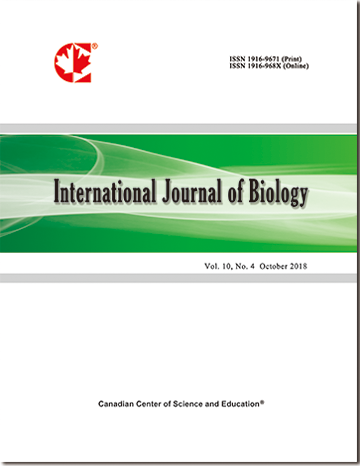A hyaluronidase from the Snake Venom of Agkistrodon Blomhoffii Ussurensis of Changbai Mountain: Isolation and Characterization
- Dubo Zhong
- Qingxiong Meng
- Junming Li
- Yaqin Wang
- Xiaohong Zhang
- Shixing Wang
- Hongkun Zhu
Abstract
Snake venom is a complex mixture of protein and peptide toxins. Hyaluronidase a‘spreading factor’ has not beenstudied extensively in snake venom. In this paper, we describe the purification and characterization of a
hyaluronidase from the snake venom of Agkistrodon blomhoffii ussurensis of Changbaimountain. Hyaluronidase
has been purified by the successive chromatography on a DEAE-Sephadex A-25, on CM- Sephadex C-25 and on
Sephadex G-75 columns on the basis of the purification method of thrombin-like enzyme (TLE). The molecular
mass was found to be 35.0 kDa by SDS-polyacrylamide gel electrophoresis. Hyaluronidase was 5.66 percent of
the snake venom of Agkistrodon blomhoffii ussurensis of Changbai mountain, the activity of mass (u/g) was
437218.5. The pH optimum for the enzyme was in the rang of 3.0-4.0 and 6.0-6.5,maximum activity was
obtained at 37?, and the optimum concentration of Na+(mol/L) was in the rang of 0.3-3.0, the Km for
hyaluronidase, using hyaluronic acid as substrate, was 4.633 × 10-3 mg/ml. The hyaluronidase had not the
inhibition effect to growth of the Hela cell and HepG-2 cell in vitro through the experiment.
- Full Text:
 PDF
PDF
- DOI:10.5539/ijb.v2n2p171
Index
- ACNP
- AGRICOLA
- BASE (Bielefeld Academic Search Engine)
- CAB Abstracts
- CiteFactor
- CNKI Scholar
- CrossRef
- DTU Library
- Elektronische Zeitschriftenbibliothek (EZB)
- Excellence in Research for Australia (ERA)
- Google Scholar
- Infotrieve
- LIVIVO (ZB MED)
- LOCKSS
- Max Planck Institutes
- MIAR
- PKP Open Archives Harvester
- Qualis/CAPES
- ResearchGate
- ROAD
- SafetyLit
- SHERPA/RoMEO
- Technische Informationsbibliothek (TIB)
- Universe Digital Library
- WorldCat
Contact
- Ryan JonesEditorial Assistant
- ijb@ccsenet.org
